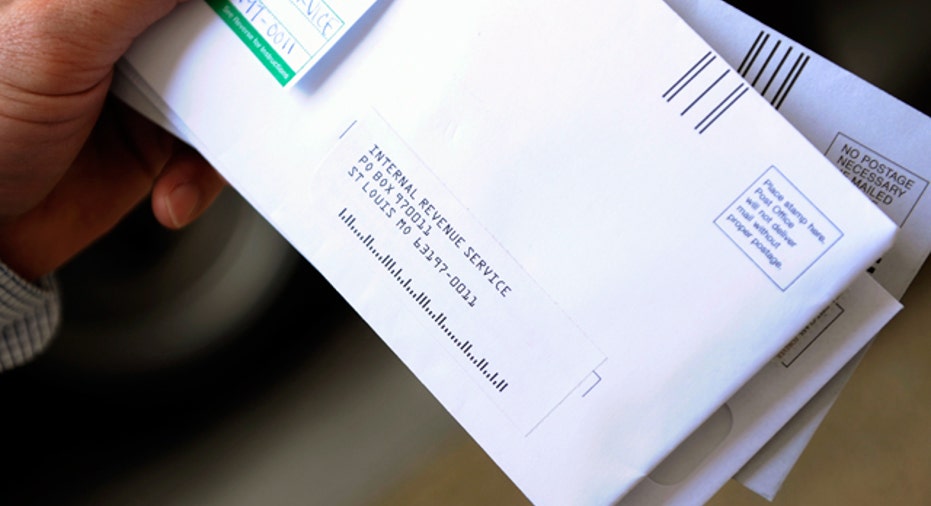Tax Liens vs. Tax Levies: What’s the Difference?

Mike, a client of mine, walked into my office one day with a big stack of unopened envelopes from the IRS and a stressed frown creasing his face. “They did it. The IRS took all of my money out of my bank account. What am I supposed to do now? Can I get my money back?”
The short answer: Usually not.
But long ago I realized that the answer to every tax question is: “it depends,” so I’m never too quick to respond. I began ripping open the envelopes he’d tossed on my desk. The letters started about two years ago with a benign, “Hey you, here’s what you owe, pay the bill,” and pretty much ended with “Respond now or else…” The “or else” time frame had been reached. The IRS does not like to be ignored, especially after extending so much patience over a lengthy correspondence. So they pounced and levied funds and took what was owed.
The good news is I was able to get the levy released and the money was returned simply because the levy presented a hardship for Mike. He would not have been able to pay his employees without that money. And the IRS has a soft spot for wage earners. Of course, there were hoops (laced with fire) that Mike had to jump through to make this happen: namely, set up an installment agreement and stick to it or risk another levy.
The lesson here is to meet the dragon head on. It’s not nearly as bad as you think, and it’s certainly less painful than going to the bank one day and finding all your hard-earned cash gone.
Tax Liens
A lien differs from a levy, in that the IRS will file a lien when the agency feels there is a chance that collection is in peril. It does not just grab your assets. Filing of a tax lien is normally dictated by the dollar amount; the IRS’s Fresh Start program has increased the lien threshold from $5,000 to $10,000.
The Notice of Federal Tax Lien is filed in the public records office and is attached to any property you own. If you sell the property, proceeds will be used to satisfy the lien. Any person or company pulling a credit report on you will see the tax lien. This will damage your borrowing ability, making it difficult to refinance your home, get an auto loan, credit card, or business loan.
The IRS will not withdraw a lien once your balance dips under the $10,000 mark. However you can request a lien release. Use Form 12277, Application for Withdrawal, available here.
Generally, eligibility requirements are:
- Your tax liability has been satisfied and your lien has been released
- You are in compliance for the past three years in filing: all individual and business returns, all information returns (1099s, etc.),
- You are current on your estimated tax payments and federal tax deposits, as applicable.
If you enter into a Direct Debit installment agreement, you may have your lien withdrawn. In item 11 on Form 12277, “Reason for requesting withdrawal,” check the two boxes: “entered into an installment agreement,” and “The taxpayer is under a Direct Debit Installment Agreement” provision.
Eligibility Requirements are:
- The current amount you owe must be $25,000 or less
- If you owe more than $25,000, you may pay down the balance to $25,000 prior to requesting the lien withdrawal to be eligible
- Your Direct Debit Installment Agreement must full pay the amount you owe within 60 months or before the Collection Statute expires, whichever is earlier
- You must be in full compliance with other filing and payment requirements
- You must have made three consecutive direct debit payments
- You cannot have previously received a lien withdrawal for the same taxes unless the withdrawal was for an improper filing of the lien
- You cannot have defaulted on your current, or any previous, direct debit installment agreement
If are currently on a regular installment agreement, you may convert to a Direct Debit Installment Agreement. To convert a regular installment agreement to a Direct Debit Installment Agreement, individuals may use the Online Payment Agreement (OPA) application or call 1.800.829.0922. If you are self-employed, call 1.800.829.8374. Businesses may call the toll free line 1.800.829.0115 or visit your local IRS office.
Bear in mind that if you default on your Direct Debit installment agreement after the lien is withdrawn, a new notice of lien may be filed and collection efforts may resume.
Bonnie Lee is an Enrolled Agent admitted to practice and representing taxpayers in all fifty states at all levels within the Internal Revenue Service. She is the owner of Taxpertise in Sonoma, CA and the author of Entrepreneur Press book, “Taxpertise, The Complete Book of Dirty Little Secrets and Hidden Deductions for Small Business that the IRS Doesn't Want You to Know.” Follow Bonnie Lee on Twitter at BLTaxpertise and at Facebook.



















